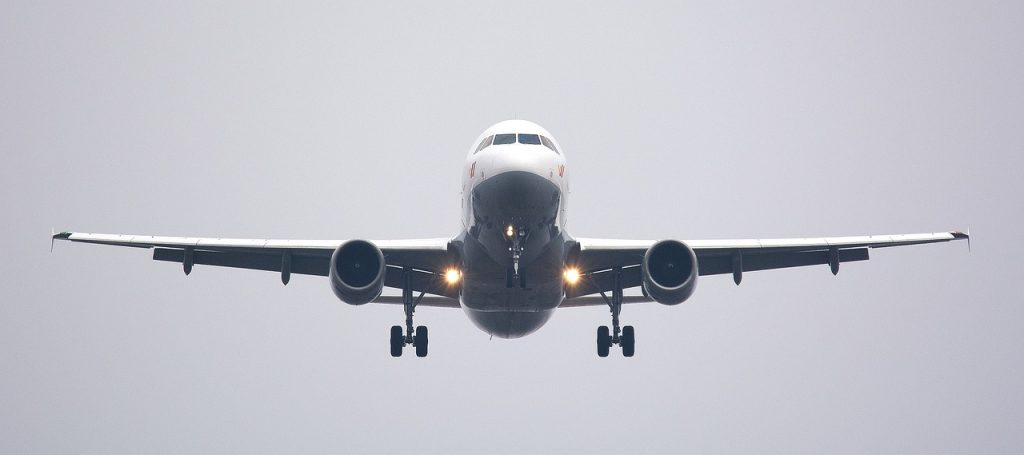The quest to secure the best deal on plane tickets can often feel like a mysterious and elusive task, with prices seemingly fluctuating without reason and the best booking strategies shrouded in myth. The truth is, while there is no one-size-fits-all answer to the best time to buy plane tickets, understanding the dynamics of airline pricing can give you a significant advantage in finding a good deal.
Understanding Airline Pricing Strategies
Before diving into the best times to buy, it’s important to understand how airlines set their prices. Airline pricing is a complex art that combines historical data, competitor pricing, demand forecasting, and even current events to set the price of each seat. Prices change not just daily, but often hourly, as airlines utilize sophisticated algorithms to adjust to market conditions.
General Booking Windows
While each flight and route will vary in terms of the best time to buy, several general rules have emerged from the analysis of airfare data:
Advance Purchase: Generally, booking your flight between one to four months in advance tends to yield good prices. For domestic flights, aim for 1-3 months in advance, and for international flights, 2-4 months ahead is a good rule of thumb.
The Prime Booking Window: Many travel experts cite the “prime booking window” which is roughly 4 weeks to 3 months before the flight, where prices are likely to be lower.
Last-Minute Deals: These can sometimes appear, but they are not as common as they used to be. Last-minute deals are typically best for those with flexible schedules and destinations.
The Impact of Day of the Week
There have been numerous studies with conflicting results about which day of the week is the best to book flights. Some suggest that Tuesday and Wednesday are the best days to book flights, as you might catch a dip in prices from fare adjustments following the weekend. However, this is not a steadfast rule, and fluctuations can occur at any time.
Seasonality and Timing
The time of year greatly affects flight prices. Peak travel times, such as during major holidays or summer months, typically have higher prices. Conversely, flying during the off-season or shoulder seasons can lead to significant savings.
Time of Day for Flying
Flying at less popular times of the day, like early morning or late at night, can also be cheaper. Red-eye flights, for instance, are often less expensive.
Days of the Week
In terms of departure days, mid-week flights – Tuesday to Thursday – can offer savings since they traditionally have less demand than weekend flights.
Sales and Fare Alerts
Airlines often have sales that are unannounced or linked to specific events. Signing up for airline newsletters and fare alert systems can help you catch these deals. Websites and apps that track flights can notify you when prices drop for your preferred routes.
The Role of Airfare Search Engines
Airfare search engines can be a powerful tool in your quest for the cheapest ticket. They can quickly compare prices across multiple airlines and booking sites, potentially saving you money and time. However, it’s worth noting that not all search engines are created equal. Some may not include budget carriers or special web fares, so it’s often worth checking these separately.
Frequent Flyer and Loyalty Programs
If you frequently fly with a particular airline, you can often find the best ticket prices by combining loyalty program benefits with timing. This can include early access to sales, discounts, and the ability to use miles to purchase tickets outright.
Flexibility Is Key
One of the biggest factors in finding cheap airfare is flexibility. If you can be flexible with your travel dates, times, and even destinations, you’re more likely to find a better deal. Flying into a nearby airport or on a different day could save you money.
Avoiding Dynamic Pricing Traps
It’s well-known that airlines and booking sites may use cookies to track your search history, potentially leading to dynamic pricing where the price increases with perceived demand. To avoid this, clear your cookies or use private browsing when searching for flights.
Booking Direct vs. Third-Party Sites
Sometimes booking directly through the airline can be cheaper, as third-party sites may include additional fees. Moreover, if your travel plans change or you need customer service, dealing with the airline directly is often easier.
International Flights
When booking international flights, consider local holidays and events that might impact flight prices. Additionally, international tickets tend to start at their lowest prices and go up as the date approaches, so earlier is typically better.
Myth-Busting: The Tuesday Myth
One of the most persistent myths is that flights are cheapest to purchase on Tuesdays. This was somewhat true in the past when airlines would load fares at the beginning of the week, but with modern dynamic pricing, deals can pop up any day of the week.
Finding the best time to buy plane tickets is not an exact science. However, by understanding airline pricing strategies, considering the timing of your purchase, being flexible with your travel plans, setting fare alerts, and booking at the right time, you can improve your chances of getting a great deal on airfare.
Keep in mind that the ‘best time’ can vary widely depending on a multitude of factors including the destination, season, and even the current economic climate which can affect fuel prices and, in turn, ticket costs. Staying informed, adaptable, and proactive in your search will give you the best shot at finding those elusive, wallet-friendly fares.
Beyond the general advice, seasoned travelers often employ more nuanced strategies to secure the best possible deals on flights. Let’s explore some advanced tips:
Use Incognito Mode:
When searching for flights, use your browser’s incognito mode to avoid potential price increases based on your browsing history. This ensures that every search is treated as if it’s your first, potentially dodging any dynamic price hikes.
Consider Alternative Airports:
Don’t just search for flights to and from your nearest airports. Look at alternative airports that may be a little further away but could offer cheaper flights. This is especially true in major city clusters where several airports may serve the same general area.
Mix and Match Airlines:
You might find it cheaper to book your outbound and return flights with different airlines. While this means you might have to compromise on convenience, such as no through-checking of baggage, the savings can be substantial.
Take Advantage of Fare Classes:
Airlines often offer different fare classes with varying restrictions and benefits. Sometimes, choosing a higher fare class can be cheaper in the long run when considering the added costs of baggage and seat selection.
Monitor Currency Fluctuations:
For international flights, currency fluctuations can impact the price of your ticket when purchased from different countries. Some travelers save money by booking on the airline’s site from a different country where the currency may be weaker against their own.
Use Airline Alliances:
If you have miles with one airline, you might be able to book flights with a partner airline for a better deal. This is where being a member of an airline alliance can come in handy.
Book During a Sale:
This might seem obvious, but it’s worth stating: always try to book during a sale. Airlines frequently have seasonal sales, flash sales, and promotions linked to specific events or milestones.
Pay Attention to Historical Data:
There are several tools available that analyze historical flight pricing data. These tools can predict whether the price of a particular flight is likely to increase or decrease. Hopper, for example, offers a color-coded calendar which shows the cheapest and most expensive dates to fly.
Understand the Impact of Oil Prices:
Oil prices have a direct impact on airline ticket prices. If oil prices are particularly low, it might be worth waiting a bit before booking, as airfares could drop. Conversely, if oil prices are on the rise, it might be best to book sooner rather than later.
Check Social Media and Forums:
Airlines sometimes share special promotions on their social media channels or through email newsletters. Furthermore, forums like FlyerTalk can be goldmines for the latest deals and error fares.
Error Fares:
Occasionally, airlines post incorrect prices due to human error, technical glitches, or currency conversion mishaps. These error fares can be significantly lower than the standard price and are often honored by airlines if booked quickly before they are corrected.
Consider Nearby Dates:
If your travel dates are fixed, it still pays to look at the cost of flights on the days surrounding your ideal dates. Sometimes flying a day earlier or returning a day later can result in better fares.
Long-Term Planning and Alerts
Planning ahead is not just about buying your ticket well in advance but also setting yourself up for future alerts and deals. Services like Google Flights or Kayak offer features where you can track specific flights and receive email notifications when prices drop.
When Deals Are Typically Published
Airlines tend to release new fares and sales on Tuesdays, which might be the root of the Tuesday myth. By Wednesday, other airlines have usually had the chance to match these prices, leading to a brief period where deals can be more prevalent.
The Early Bird vs. Last-Minute Gambit
While it’s typically advised to book early, there are certain scenarios where last-minute booking can be advantageous. This is usually for less popular routes or during off-peak seasons when airlines are trying to fill up planes. Be warned, though: this is a high-risk strategy and more often than not will result in higher prices.
When to Buy Holiday Flights
For holiday travel, the best time to book is usually well in advance. For Christmas, New Year’s, and Thanksgiving flights, booking as early as possible is typically the best strategy. Prices for these high-demand times rarely drop as the dates approach.
The Importance of Being Informed
In conclusion, the best time to buy plane tickets is not a single golden hour but a confluence of timing, flexibility, knowledge, and sometimes, luck. Staying informed about industry trends, understanding the complex pricing strategies of airlines, and utilizing technology to your advantage can lead to significant savings.
By employing these strategies and staying vigilant, you increase your chances of snagging that great deal. Remember, patience and persistence are virtues in the quest for the cheapest airfare. The more effort you put into understanding the nuances of airline pricing, the better equipped you’ll be to spot the best deals when they arise.














